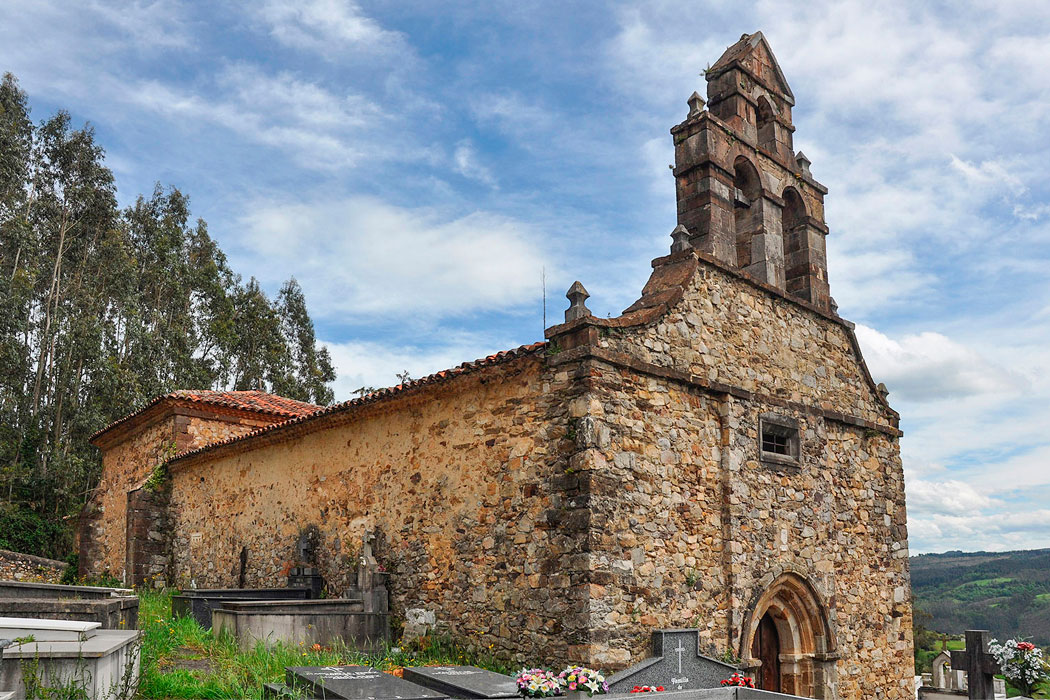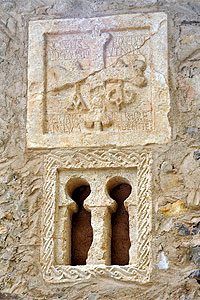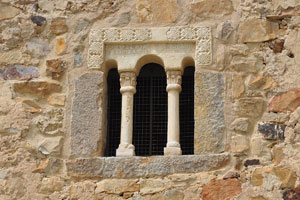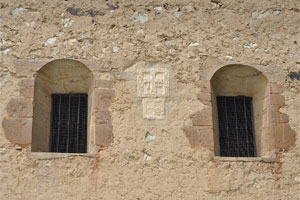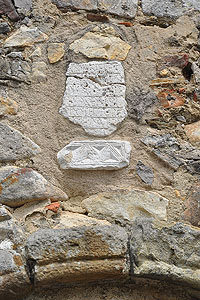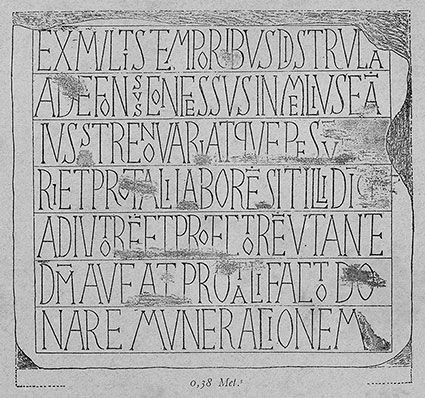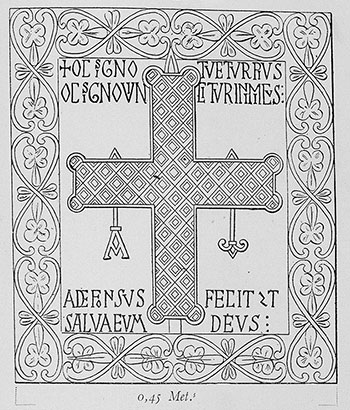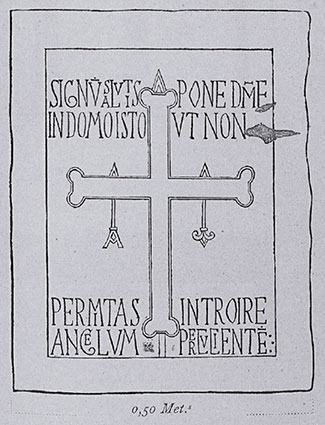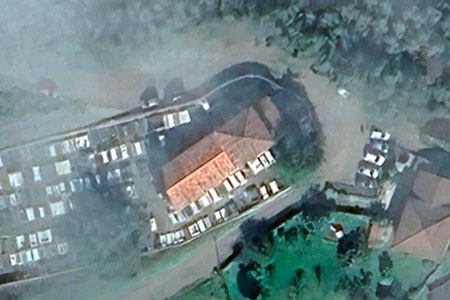In this location, away from the urban center of the town of Salas, there was an early church built between the 8th and 9th centuries, which was later rebuilt. That building is mentioned for the first time in the year 896 in a donation made by Don Gonzalo, son of Alfonso III and Queen Jimena. A preserved inscription mentions that in the year 951, a certain Adefonsus († 969) restored that church. It has been speculated that this figure was part of the royal family.
In the year 1006, Queen Velasquita († after 1028, first wife of Bermudo II of León) donated San Martín de Salas to the church of San Salvador de Oviedo. The building belonged to the personal heritage of the donor and had the status of a monastery. Later, in 1020, there is still record of a new donation of the monastery of San Martín made by Abbot Alfonso to some private individuals, without mentioning the church of San Salvador. It was the old parish church of Salas until 1886, when this function was transferred to Santa María la Mayor.
The current church is the result of multiple modifications carried out over time to the medieval building, especially in the 15th century, when it was rebuilt. At that time, inscriptions, reliefs, and other decorative elements from the Pre-Romanesque period, originally from the same church, were embedded in its walls, forming a notable collection of epigraphy from that era. These elements were preserved in this location until 1980, when they were removed in a rather unorthodox manner. Fortunately, they were saved and are now preserved in the Museo Prerrománico de San Martín, in the same town of Salas.
- ARIAS PÁRAMO, Lorenzo (2020). Guía del Museo Prerrománico de San Martín de Salas. Salas: Aula Valdés Salas
- GARCÍA GUINEA, Miguel Ángel; dir. (2007). Enciclopedia del Prerrománico en Asturias. Aguilar de Campoo. Fundación Santa María la Real
- MIGUEL VIGIL, Ciriaco (1887). Asturias monumental, epigráfica y diplomática, datos para la historia de la provincia. Oviedo: I. Hospicio Provincial
